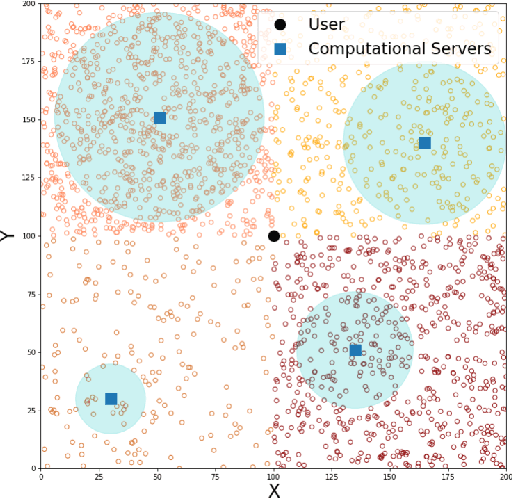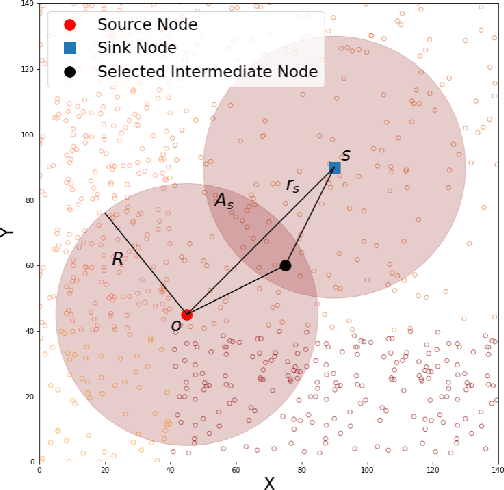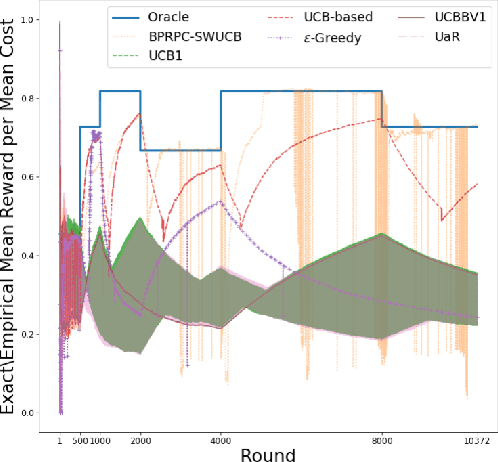Multi-Armed Bandit for Energy-Efficient and Delay-Sensitive Edge Computing in Dynamic Networks with Uncertainty
Paper and Code
Apr 12, 2019



In the emerging edge-computing paradigm, mobile devices offload the computational tasks to an edge server by routing the required data over the wireless network. The full potential of edge-computing becomes realized only if the devices select the most appropriate server in terms of the latency and energy consumption, among many available ones. This problem is, however, challenging due to the randomness of the environment and lack of prior information about the environment. Therefore, a smart device, which sequentially chooses a server under uncertainty, attempts to improve its decision based on the historical time- and energy consumption. The problem becomes more complicated in a dynamic environment, where key variables might undergo abrupt changes. To deal with the aforementioned problem, we first analyze the required time and energy to data transmission and processing. We then use the analysis to cast the problem as a budget-constrained multi-armed bandit problem, where each arm is associated with a reward and cost, with time-variant statistical characteristics. We propose a policy to solve the formulated bandit problem and prove a regret bound. The numerical results demonstrate the superiority of the proposed method compared to a number of existing solutions.
 Add to Chrome
Add to Chrome Add to Firefox
Add to Firefox Add to Edge
Add to Edge